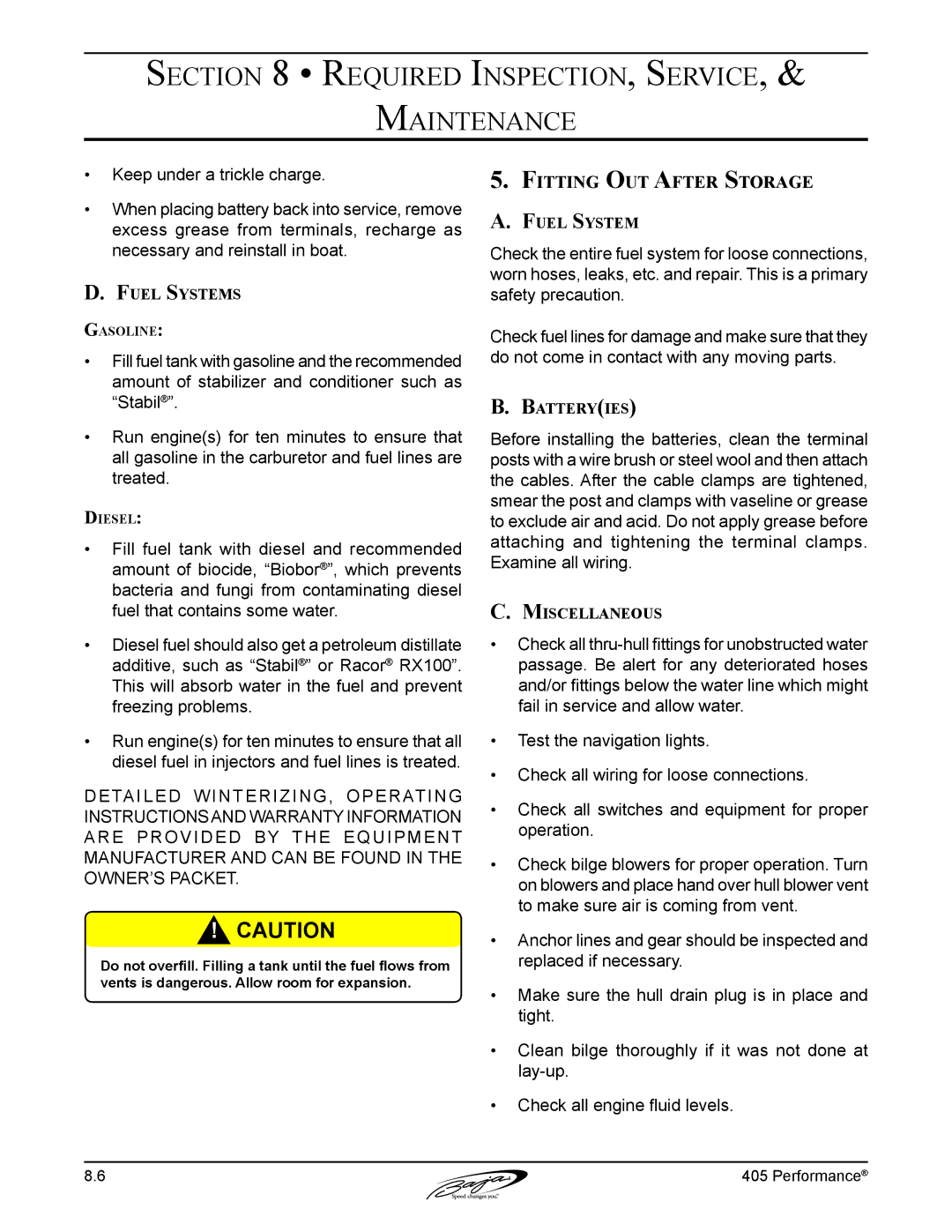
Section 8 • Required Inspection, Service, &
Maintenance
•Keep under a trickle charge.
•When placing battery back into service, remove excess grease from terminals, recharge as necessary and reinstall in boat.
D.Fuel Systems
Gasoline:
•Fill fuel tank with gasoline and the recommended amount of stabilizer and conditioner such as “Stabil®”.
•Run engine(s) for ten minutes to ensure that all gasoline in the carburetor and fuel lines are treated.
Diesel:
•Fill fuel tank with diesel and recommended amount of biocide, “Biobor®”, which prevents bacteria and fungi from contaminating diesel fuel that contains some water.
•Diesel fuel should also get a petroleum distillate additive, such as “Stabil®” or Racor® RX100”. This will absorb water in the fuel and prevent freezing problems.
•Run engine(s) for ten minutes to ensure that all diesel fuel in injectors and fuel lines is treated.
DETAILED WINTERIZING, OPERATING INSTRUCTIONSAND WARRANTY INFORMATION ARE PROVIDED BY THE EQUIPMENT MANUFACTURER AND CAN BE FOUND IN THE OWNER’S PACKET.
!CAUTION
Do not overfill. Filling a tank until the fuel flows from vents is dangerous. Allow room for expansion.
5.Fitting Out After Storage
A.Fuel System
Check the entire fuel system for loose connections, worn hoses, leaks, etc. and repair. This is a primary safety precaution.
Check fuel lines for damage and make sure that they do not come in contact with any moving parts.
B.Battery(ies)
Before installing the batteries, clean the terminal posts with a wire brush or steel wool and then attach the cables. After the cable clamps are tightened, smear the post and clamps with vaseline or grease to exclude air and acid. Do not apply grease before attaching and tightening the terminal clamps. Examine all wiring.
C.Miscellaneous
•Check all
•Test the navigation lights.
•Check all wiring for loose connections.
•Check all switches and equipment for proper operation.
•Check bilge blowers for proper operation. Turn on blowers and place hand over hull blower vent to make sure air is coming from vent.
•Anchor lines and gear should be inspected and replaced if necessary.
•Make sure the hull drain plug is in place and tight.
•Clean bilge thoroughly if it was not done at
•Check all engine fluid levels.
8.6 | 405 Performance® |
